Summary for Wednesday, 22nd April
Hello and welcome back to our rolling coverage of the coronavirus outbreak. We're writing to you from Asia this morning and will be joined by our colleagues from London later on in the day. Here's a quick look at what's happened overnight:
- Missouri has become the first US state to sue the Chinese government over its handling of the outbreak, saying the Chinese response led to economic losses in the state
- The US will stop issuing green cards for 60 days, with President Donald Trump saying this would protect American jobs during the outbreak
- The WHO has dismissed theories that the virus was manipulated or produced in a Chinese laboratory, saying "all available evidence" suggested it had an "animal origin"
- The world is at risk of a widespread famine of "biblical proportions" because of the virus outbreak, the UN has warned. It says the number suffering from hunger could go from 135 million to more than 250 million.
- A staggering 177,200 people worldwide have now died from the coronavirus, according to a Johns Hopkins University tally. There are over 2.5 million cases worldwide
Missouri sues China over virus pandemic
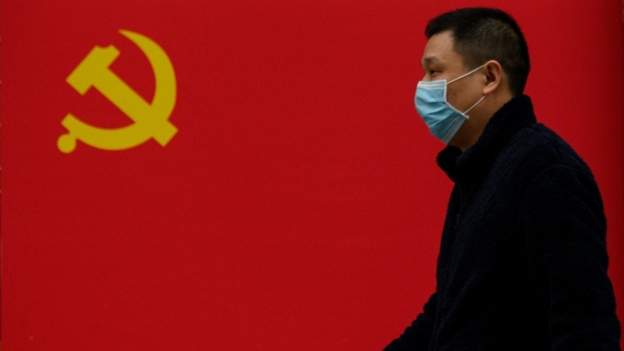
The US state of Missouri is suing the Chinese government and the ruling Communist Party over what it calls deliberate deception leading to the global Covid-19 pandemic.
"The Chinese government lied to the world about the danger and contagious nature of Covid-19, silenced whistleblowers and did little to stop the spread of the disease," Missouri Attorney General Eric Schmitt said. "They must be held accountable for their actions."
The lawsuit seeks damages for the loss of life, human suffering, and economic turmoil that has occurred in the state.
China strongly denies mishandling the crisis.
While Missouri officials called the lawsuit "historic", observers say it will face significant legal and procedural obstacles as US law gives foreign governments immunity from such actions.
Should China be worried about the Missouri lawsuit?
The civil lawsuit brought by Missouri against China comes at a time when there is increased finger-pointing by the US at Beijing over the pandemic.President Donald Trump had initially praised China for how it handled the virus, but after coming under pressure over the outbreak in the US, he raised the spectre that China might be responsible.
With US elections later this year, observers suggest the Missouri lawsuit - along with other suits brought by US companies - might serve a political end for Trump's Republican Party.
"We are seeing a lot of people on the political right focus on the China issue to cover up for the US government's own errors," Tom Ginsburg, a professor of international law at the University of Chicago told Reuters.
China itself will have little to fear from such lawsuits. Foreign governments are protected from being sued in US courts and if the US did want to bring claims against China, it would have to do so on an international platform where Beijing would have the right to respond.
UN warns of famines of ‘biblical proportions’
The world is at risk of widespread famines "of biblical proportions" over the virus, the UN World Food Programme (WFP )warns.A new WFP report estimates the number suffering from hunger could go from 135 million to more than 250 million.
Those most at risk are in 10 countries affected by conflict, economic crisis and climate change: Yemen, the Democratic Republic of the Congo, Afghanistan, Venezuela, Ethiopia, South Sudan, Sudan, Syria, Nigeria and Haiti.
Even before the pandemic hit, parts of East Africa and South Asia were already facing severe food shortages.
Click here to read our full story on the famine warning
Sydney's Bondi Beach to reopen
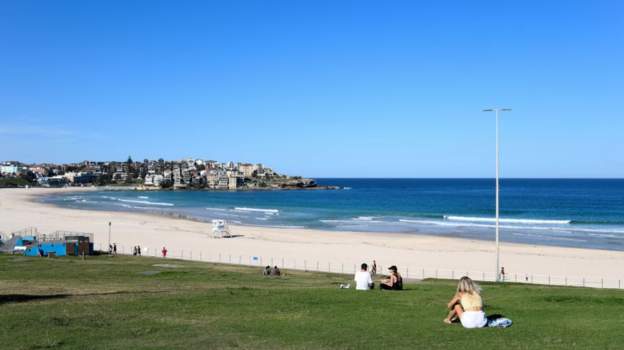
People can return to Bondi Beach for exercise from next Tuesday
Good morning from Sydney, where more restrictions are being loosened as new cases slow to a trickle.
- The famous Bondi Beach will be reopened to swimmers and surfers next week after a month-long closure. It follows the reopening of a few neighbouring beaches on Monday
- Two people have died overnight bringing Australia’s death toll to 74. Rates continue to dwindle with the biggest state, New South Wales, reporting its lowest number yet – just five cases – while Queensland recorded zero new infections for a second day
- Canberra is defending its decision to let Virgin Australia crash into voluntary administration- saying interested investors wouldn’t come forward had the government stepped in
- And our longest-running soap opera Neighbours will resume filming next week. Producers say they’ll use a bit of “camera trickery” to mask the fact actors are projecting their lines over a 1.5m distance.
Just some detail on Bondi Beach reopening next week – this is the busiest, most-popular beach in Sydney and the source of a virus cluster.
It was shut down weeks ago after people kept flocking to the ocean, ignoring the newly-announced distancing rules. It then also emerged that the area was a virus hotspot with infections among backpackers and locals.
However, society has become much more used to the restrictions since then and after neighbouring beaches Coogee and Clovelly reopened this week, local council voted last night to bring down the barriers.
It’s a controversial decision as Bondi remains the most heavily infected area in the state, and there's evidence people are still breaking the rules.
But from Tuesday, people will only be given access for exercise and will have to follow a path straight to the water. The beach will also only be open on weekdays.
What's happening in Asia?
As much of Asia begins waking up, we take a look at what's happening across the region:- China has seen a slight rise in the number of imported cases. It recorded 30 new cases on Tuesday, 23 of which were imported and seven of which were local cases in the border city of Heilongjiang. China had on Monday seen only 4 imported cases
- Japan’s Nagasaki prefecture says there are 33 cases of coronavirus infection on an Italian cruise ship that was docked for repair in the city, reported Reuters. Local media outlets say the Costa Atlantica is carrying 623 crew and no passengers
- Thailand has approved a second automatic visa extension for foreigners, in an effort to prevent long queues at immigration centres
- Around 500 people at the Presidential House in the Indian capital of New Delhi went into self-isolation after a worker's relative tested positive for the virus
US top health expert warns of second wave
A senior US disease expert has warned that a second wave of coronavirus cases could be worse than the current one, as it would probably coincide with the start of the flu season.“There’s a possibility that the assault of the virus on our nation next winter will actually be even more difficult than the one we just went through,” Robert Redfield, head of the Centres for Disease Control and Prevention (CDC), told the Washington Post.
He said that having two simultaneous respiratory outbreaks would put unimaginable strain on the health-care system.
His warning comes as several US states prepared to reopen their economies and he urged the coming months to be used to prepare for what lies ahead and that social distancing must continue.
China official calls Australian minister a 'US puppet'

Australian minister Peter Dutton has called for an investigation into China
In another war of words between China and the West, Beijing’s embassy in Australia has accused a senior government minister of being a lackey in the “propaganda war against China” by the US.
Washington has led calls in recent weeks for an investigation into the virus’ emergence and spread in China.
Australia’s Home Affairs Minister Peter Dutton echoed such calls for Beijing to show transparency. He fell sick with the virus in March, and last week emerged to say Beijing owed answers to the families of the dead.
“It would certainly be demanded of us, if Australia was at the epicentre of this virus making its way into society,” he told the Nine Network.
In response, a Chinese embassy official told a state newspaper that "obviously he [Dutton] must have also received some instructions from Washington”.
Beijing has also criticised foreign minister, Marise Payne, who has also called for an investigation. Canberra has stood by the calls, saying they're in Australia's national interest.
Singapore rushes to get bubble tea and haircuts
Bubble tea shops have become the latest casualty of the coronavirus outbreak in Singapore.Long snaking queues were seen in front of popular bubble tea chains last night after the government announced that stores selling the sugary drink were among the shops that would have to close for at least two weeks starting today.
The new restrictions apply to F&B outlets that sell only beverages, packaged snacks or desserts. Restaurants and other food places will still be allowed to open for takeaway or delivery.
There were also similarly long queues seen at hairdresser shops and pet shops last night - who have also been deemed non-essential under the new rules.
It comes as Singapore extended its partial state of lockdown, which it refers to as a "circuit breaker", until 1 June, as the number of cases in the migrant worker community remain high.
 For any of you plebs out there who (like me) had to look up what is 'bubble tea'
For any of you plebs out there who (like me) had to look up what is 'bubble tea'  ...
...Bubble tea is a Taiwanese tea-based drink invented in Tainan and Taichung in the 1980s. Recipes contain tea of some kind, flavors of milk, and sugar. Toppings, known as "pearls", such as chewy tapioca balls, popping boba, fruit jelly, grass jelly, agar jelly, alovera jelly, sago and puddings are often added. Wikipedia
Calls for India's largest produce market to shut after trader dies
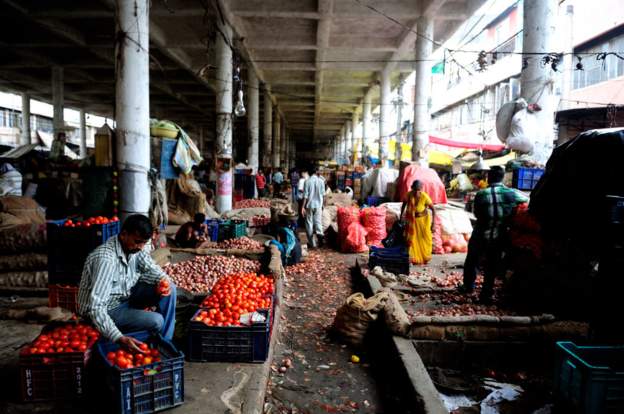
It is India's largest wholesale fruits and vegetable market
Sellers are demanding for Azadpur Mandi, one of Asia's largest wholesale fruit and vegetable markets, to be closed after a trader died of Covid-19 on Tuesday.
The 57-year-old man, who sold jackfruits and peas, tested positive on Monday, officials told the Hindustan Times newspaper.
They added that a team was looking at all the people the trader was in contact with.
Meanwhile, some traders want a complete lockdown of the market. “The authorities are being very negligent about Covid-19 spread in the market. We urge the government to shut the market for the time being," one of them said.
The market is spread across 78 acres in capital Delhi and would often attract more than 200,000 people on any given day.
It has remained open during India's lockdown and has been operating with social distancing measures in place, authorities say.
Tokyo theatre streams Kabuki plays
If you're bored at home with nothing to watch - here's some good news for you - the Phantom of the Opera's not the only theatre performance that's being streamed live on YouTube.The Kabukiza theater in Tokyo is now streaming traditional Kabuki plays on Youtube - free for all to watch.
Kabuki is a form of Japanese musical drama, which has been characterised by its elaborate costumes and sets. In it, both male and female acting roles are played by men.
Catch this traditional art form here
Trump and Harvard quarrel over relief money
US President Donald Trump has demanded Harvard University pay back nearly $9m (£7.3m) in coronavirus relief aid.He said it was wrong that an institution with a $40bn endowment should receive stimulus funds.
Harvard rejected Trump's demand, saying it planned "to direct 100% of the funds to financial assistance to students, and will not be using any of the funds to cover institutional costs".
The university said it received the grant through the educational relief program that was part of the $2.3tn stimulus passed at the end of March, which also included a larger fund for helping small businesses.
Netflix and (lockdown) chill
If you're a new subscriber to Netflix, or find yourself watching a lot more of its shows because of a lockdown where you live, you're not alone.The company says almost 16 million people created accounts in the first three months of this year, almost double the rate of new sign-ups in the final months of 2019.
And it'll come as no surprise to anyone who's been near social media in recent weeks that the Netflix documentary series Tiger King has been a huge hit, reaching 64 million households.

But you might have noticed that the picture is not as clear as you might expect. That's because demand for streaming has been so high that Netflix last month said it would reduce the quality of its videos in Europe to ease strain on internet service providers.
All of that means, that while many companies have seen their share price slump as they're hit by the gloomy economic outlook, the home-entertainment giant's stock market value has jumped by around a third this year.
Read more here.
Indian migrants: When can I go home?
Geeta Pandey - BBC News, DelhiLast week, when the lockdown in India was extended, thousands of migrant workers in Mumbai city thronged a railway station amid rumours of services restarting.
Outrage ensued in the capital, Delhi, when photos of several hundred migrants living under a bridge along the Yamuna river emerged.
These incidents, among many others, of stranded migrants have shone a spotlight on the plight of millions of poor Indians who've left villages to find jobs in cities.
Whether living in shelters, sleeping on footpaths or under flyovers, the migrants are restless and are waiting for restrictions to be eased so they can go home.
A few days back, I visited one shelter in east Delhi, located in a school building, run by the city government.
It's home to 380 migrants and I spoke to dozens of men and women there and the one question they all want answered is: "When can I go home?"
Read the full story here.
South Africa unveils $26bn Covid-19 relief package
South African President Cyril Ramaphosa has announced an economic relief package worth $26bn (£21bn) intended to protect companies and three million workers during the coronavirus pandemic.In a televised address, he said the assistance amounted to 10% of South Africa’s entire GDP.
Mr Ramaphosa said economic relief measures include tax relief, wage support through the unemployment insurance fund and funding to small businesses.
Mr Ramaphosa acknowledged that during just four weeks of lockdown, the number of people plunged into poverty and suffering food insecurity had risen dramatically.
He said the lockdown had allowed the government space to save tens of thousands of lives. But he said that after 3,400 confirmed infections and 58 deaths, the country was still in the early stages of the pandemic.
PPE equipment arrives in UK
A British RAF plane believed to be carrying a delayed consignment of personal protective equipment for UK medical workers has landed in the UK.Flight tracker RadarBox showed the Airbus A400-M depart Istanbul and land just after 03:30GMT at the RAF Brize Norton, reports PA.
The consignment was originally due to arrive on Sunday but was hit by "unexpected delays".
It is a small part of a gigantic procurement of PPE for the NHS.
For more details, read our economics editor, Faisal Islam.
How has India been doing?
If you're tuning in from India this morning, you may be wondering just how things are holding up.The lockdown was extended last week to 3 May - but it's still unclear exactly how effective it has been since experts don't know if cases in India have peaked yet.
But the time it takes for cases to double is growing - there are nearly 20,000 infections, and it took eight days to get there from 10,000. India has confirmed 640 deaths, according to data from the health ministry.
Some Indian states have also had to pause antibody testing after faulty testing kits from China displayed incorrect results. The antibody tests can help signal whether people may have built immunity to the virus.
Meanwhile, 69% of all positive cases in the country so far were asymptomatic, India's apex medical council said on Tuesday.
This ratio has raised questions over the future of India's testing strategy and whether the current one - focused mostly on those showing symptoms - needs an overhaul.
'He thinks everybody is panicking unnecessarily'
Brazil's President Jair Bolsonaro has come under criticism for his response to coronavirus, most recently for attending an anti-lockdown rally where he was seen repeatedly coughing.The BBC's South America correspondent Katy Watson looks at how Bolsonaro has responded to the virus.
Watch video here
UK morning headlines
- The UK government is facing fresh questions over the time it took to join an EU scheme to source medical equipment
- Health Secretary Matt Hancock says the UK government is "throwing everything" at developing a coronavirus vaccine, with human trials set to begin on Thursday
- An RAF plane carrying protective equipment has arrived in the UK after days of delays
- Deaths in England and Wales have nearly doubled above what would be expected, hitting a 20-year high, but experts believe the coronavirus peak may be over
Germany sees second day of slight rise in cases
Germany has seen 2,237 new positive tests over the past day, official numbers on Wednesday showed.The official overall number is now 145,694, although around two-thirds of those have already recovered.
The daily increase marks a second consecutive day of new infections slightly rising.
Earlier this week, the country eased some of its lockdown measures, allowing smaller shops to reopen and some school classes to resume.
The reported death toll rose by 281 to 4,879.
Don't forget 'deeper emergency' says UN
We may be in the midst of a pandemic, but the UN doesn't want us to forget the "deeper environmental emergency" facing the planet.That's the view of the UN Secretary General Antonio Guterres, in remarks released to celebrate Earth Day.
The toll taken by the virus is "immediate and dreadful," Mr Guterres said, adding that it's also been a wake-up call "to do things right for the future".
Coronavirus is the biggest challenged the world has faced since World War Two, Mr Guterres reiterated, but also pointed out that biodiversity is in "steep decline" with climate disruption approaching "a point of no return".
You can read more about his comments here.
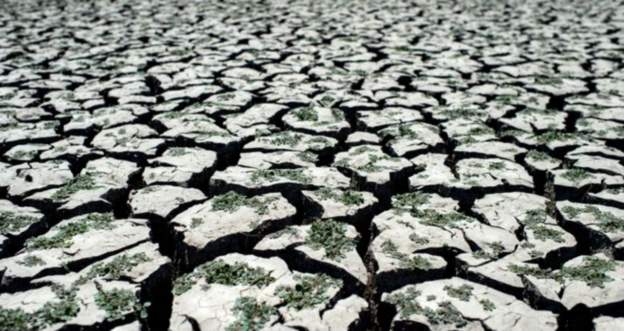
London Tube operator could run out of money by May

Transport for London (TfL) will run out of money by the end of the month unless the government steps in, Mayor of London Sadiq Khan has said.
TfL runs the UK capital's public transport systems, including the London Underground, but services have seen a dramatic drop in passengers because of coronavirus .
Khan said TfL is in discussions with the government about a grant but said it would not be able to pay staff and may have to cut services if that was not possible.
Khan told BBC London TfL is currently using cash reserves to keep running.
What explains South East Asia's low numbers?
Jonathan Head - BBC South East Asia CorrespondentThe first case of Covid-19 outside China was announced in Thailand on 13 January. The prediction was that this region, with huge numbers of Chinese visitors, would be among the worst affected. But that has not happened.
Vietnam is the standout success with only 268 cases and no deaths. The communist party leadership recognised the threat very early, declaring in late January the need to fight the virus like a war, and deploying propaganda reminiscent of the conflict with the US to get the public on board. Vietnam was also ruthless in quarantining entire districts where the virus was detected. It has limited healthcare resources and lacks the testing capacity of advanced economies like South Korea. Vietnam’s achievement is likely down to containing Covid-19 early, and using an intrusive state apparatus effectively.
Thailand’s Covid-19 numbers are also strikingly low, fewer than 3,000, with just 49 deaths. Thailand too is unable to test widely. Only 140,000 have been conducted since January. Health officials say mass testing would be too expensive. But Thailand also got its population on board very early with measures like facemasks. It has been able to isolate and trace contacts for identified cases, and has a network of one million health volunteers across the country.
Infections - and deaths - are rising quickly in Indonesia, where measures have been minimal. In Myanmar, which has a testing capacity of just 300 a day, there are fears the official Covid-19 number is far too low.
But none of these countries has levels anywhere near those in Europe and the US. Health experts aren’t sure why. Weather may play a part, as may social behaviour. It is probably too soon to know whether South East Asia will escape the terrible scenes witnessed at hospitals in Italy and New York.
What's happening in sport
- Tottenham footballers Serge Aurier and Moussa Sissoko have apologised for training together despite the coronavirus restrictions. Aurier posted a video of the pair on social media - the third time Spurs staff have been caught doing something similar
- Dutch football authorities have said they intend to call off their league season after the government extended a ban on major events (Ajax and AZ Alkmaar are joint top)
- Most major European leagues, including the English Premier League, are hoping to complete their seasons later in the summer
- European football governing body Uefa is set to announce the 2021 Women's European Championship will be held in July 2022 after the men's tournament, and the Tokyo Olympics, were postponed to 2021
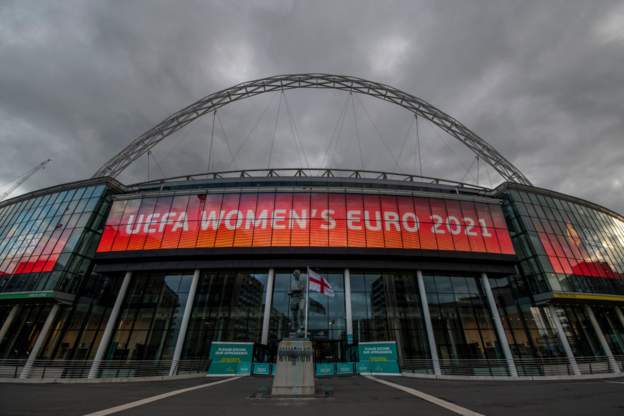
The 2021 Women's European Championships is due to be held in England








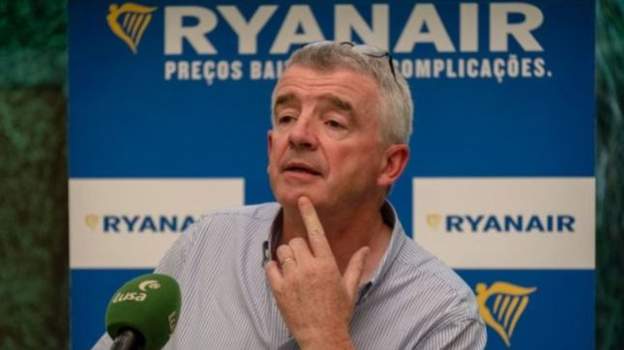

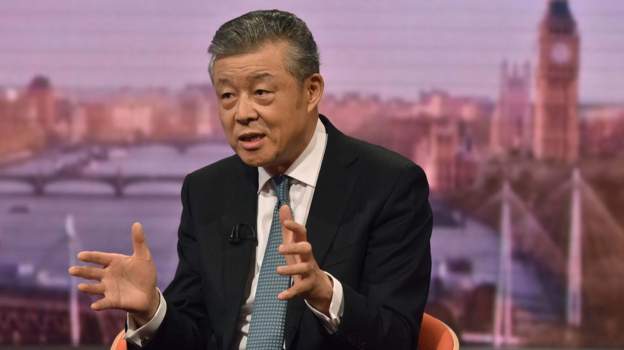

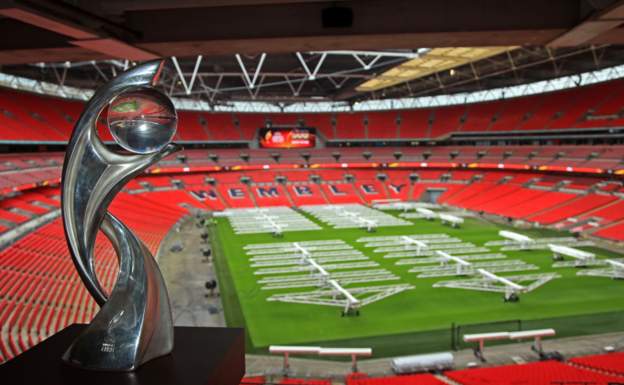











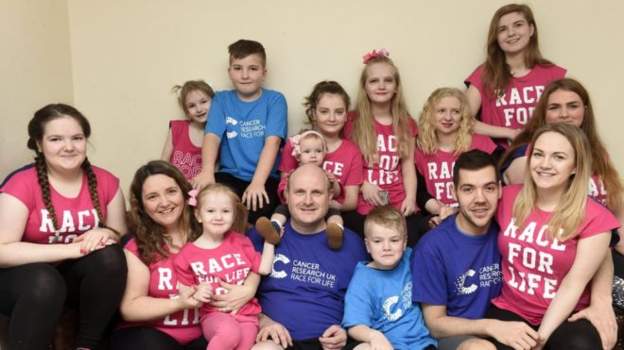
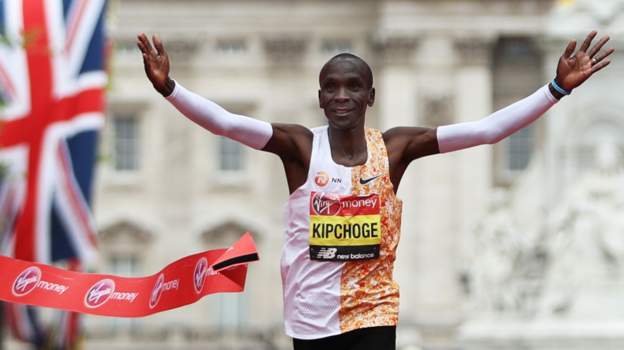
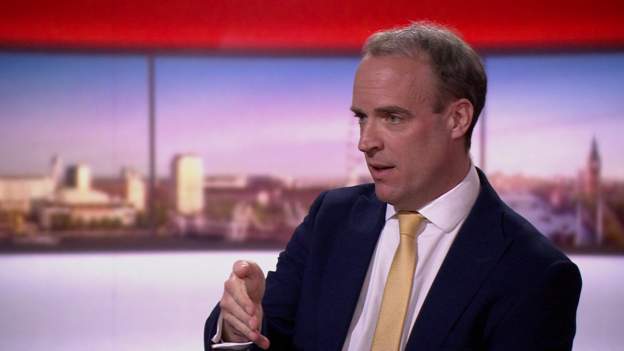
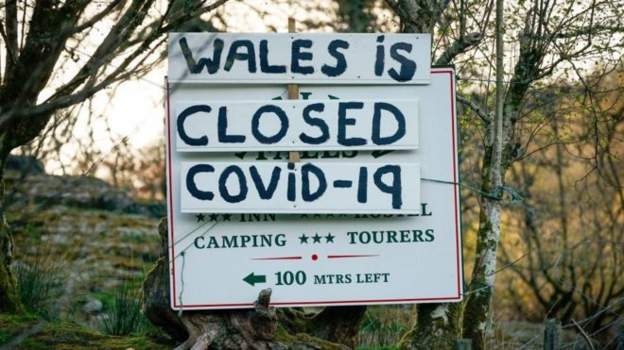
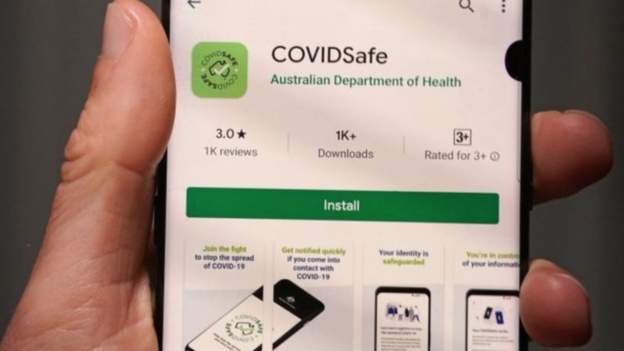

 Reality Check
Reality Check







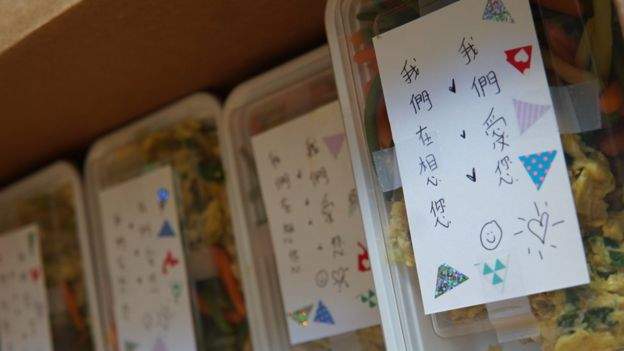


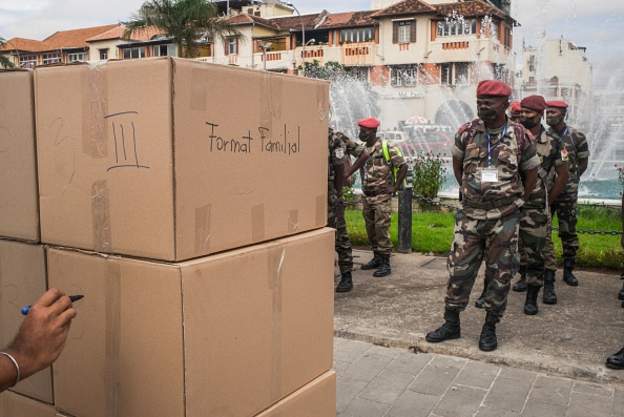


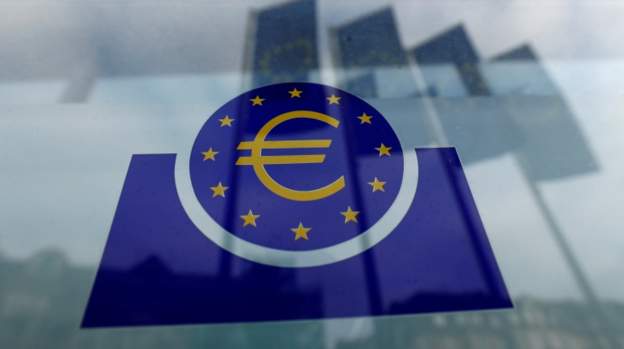








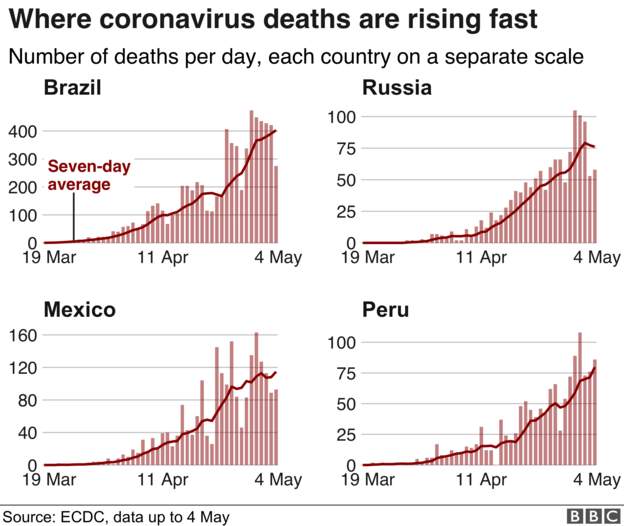







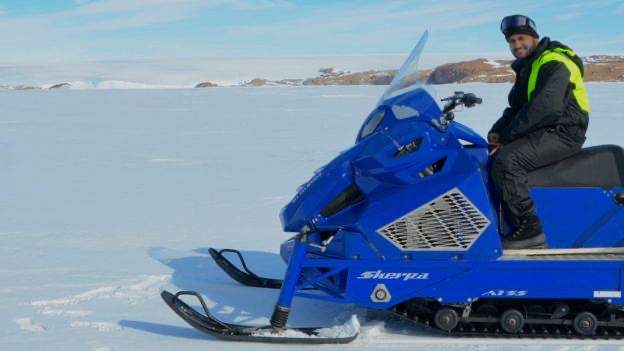



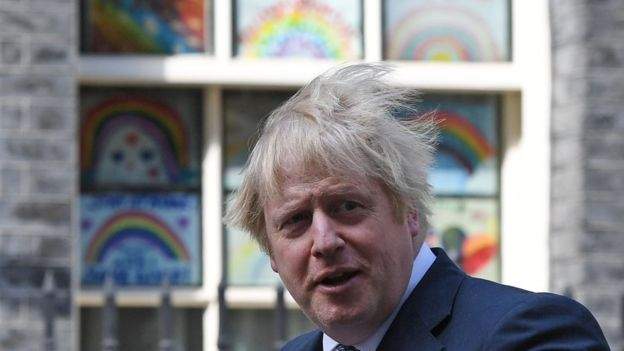




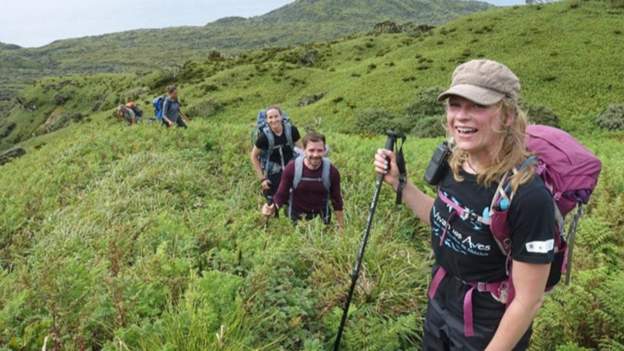

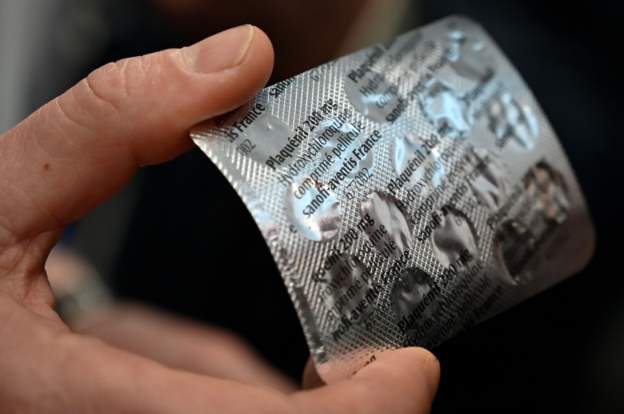
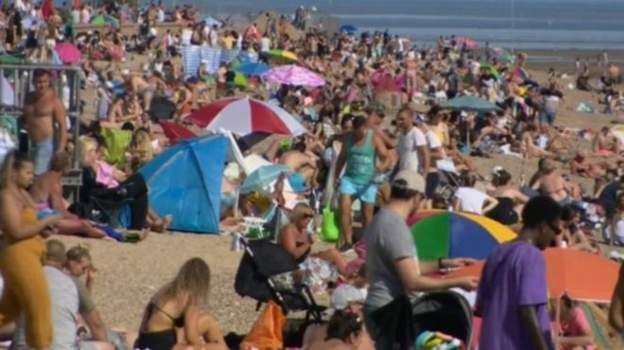



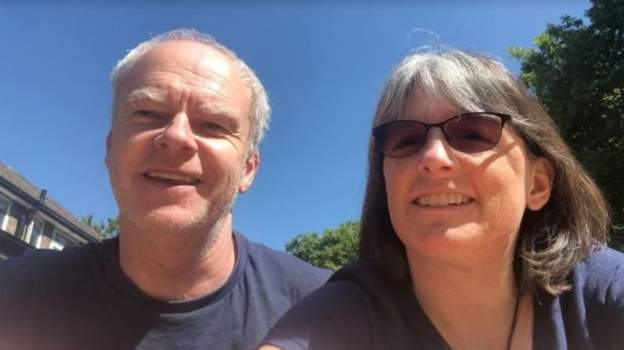


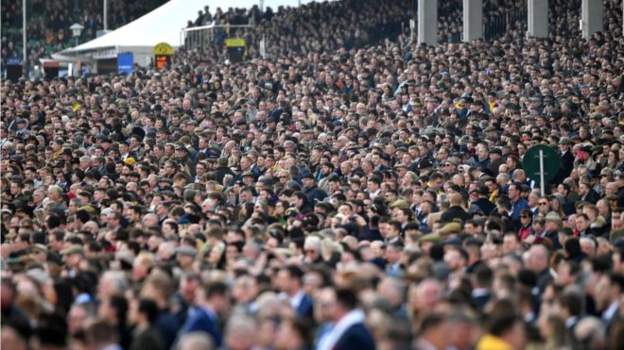







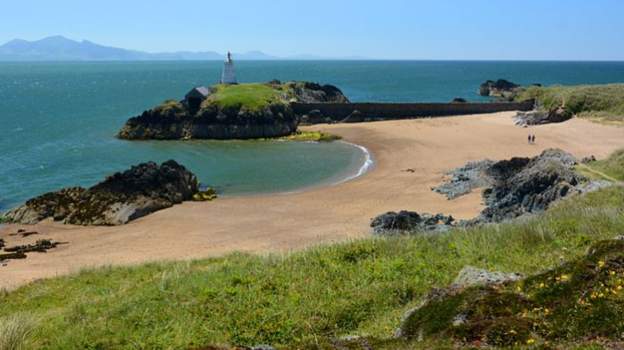


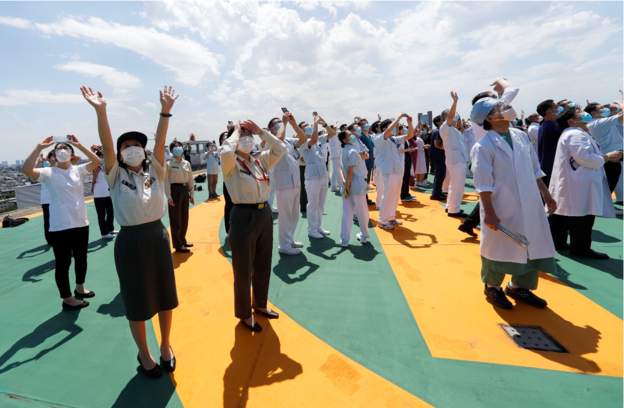
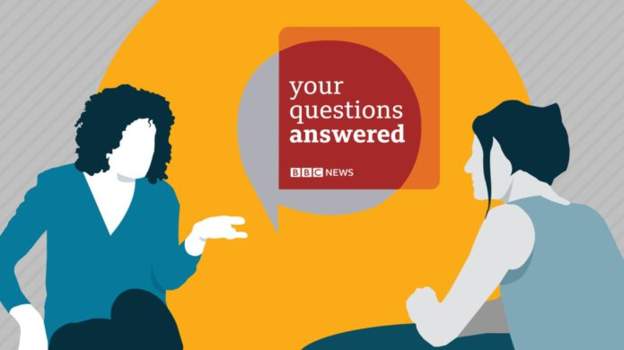



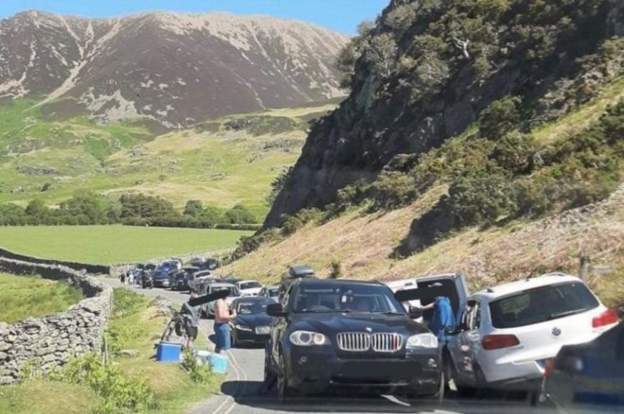
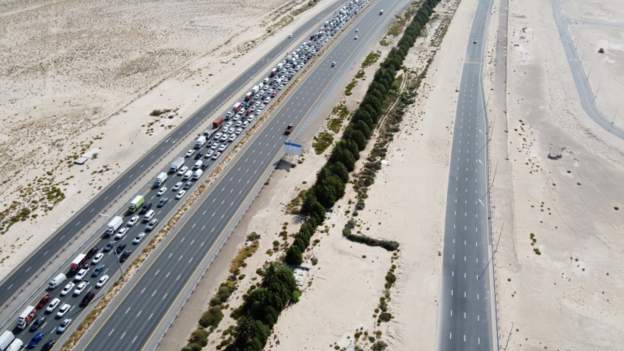



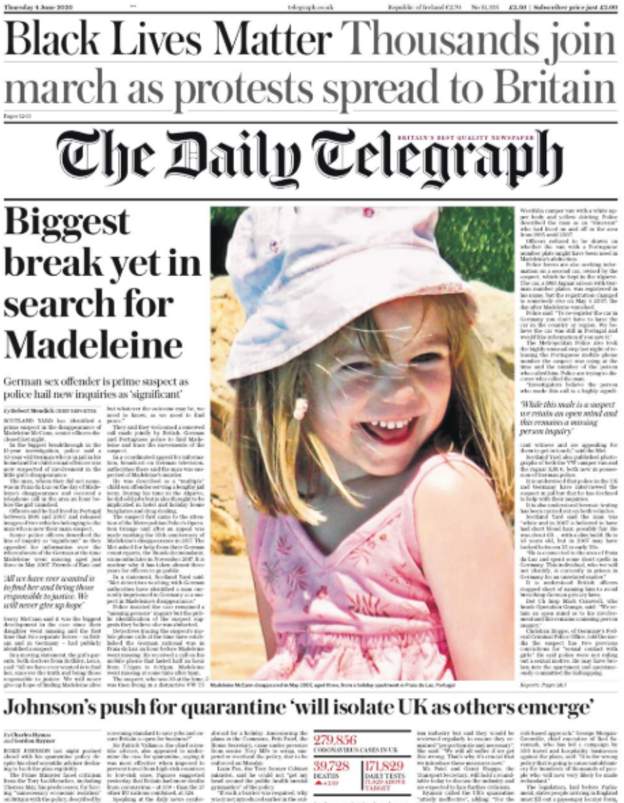






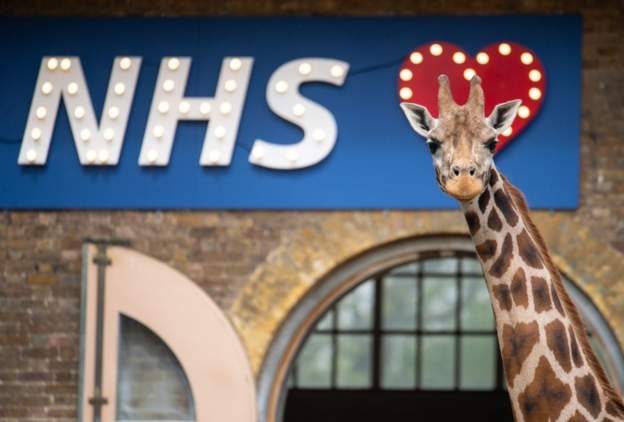
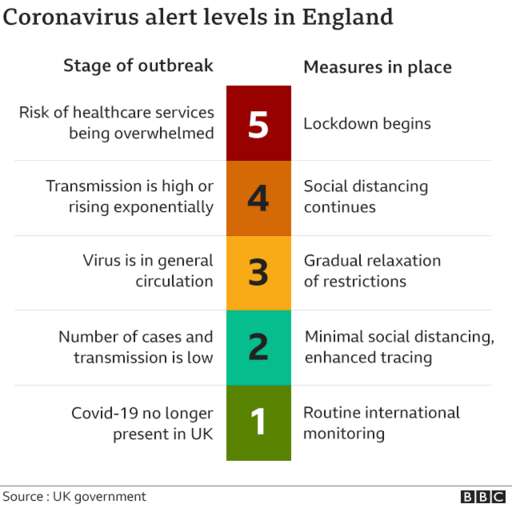
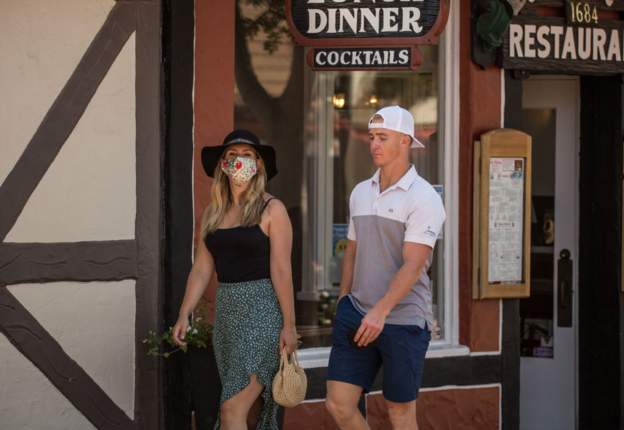

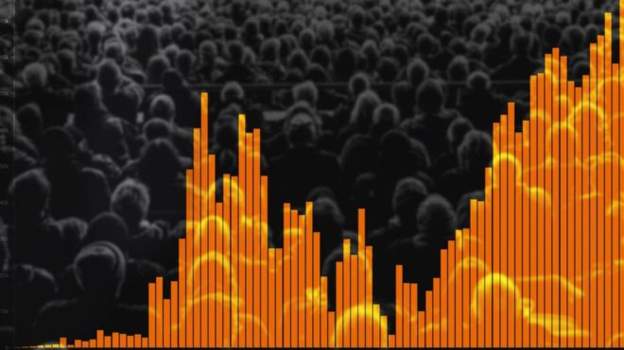
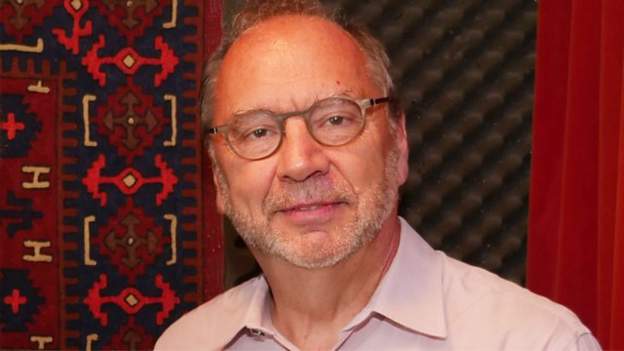
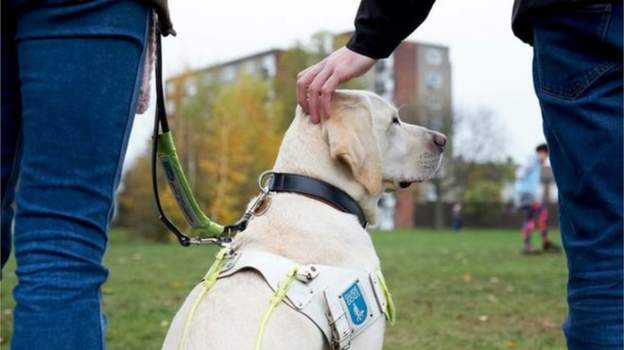
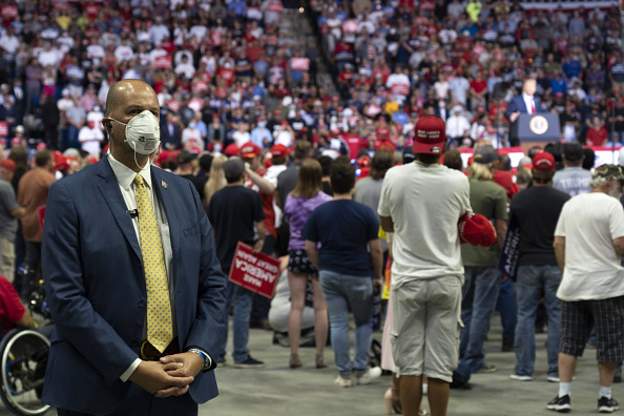
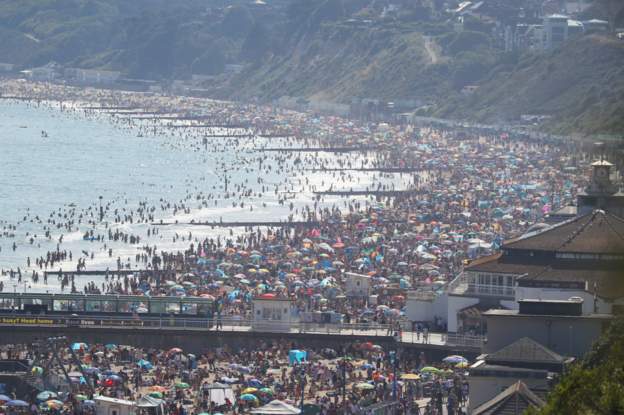

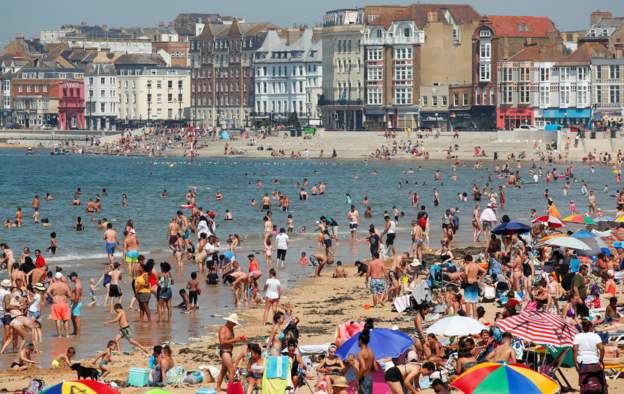





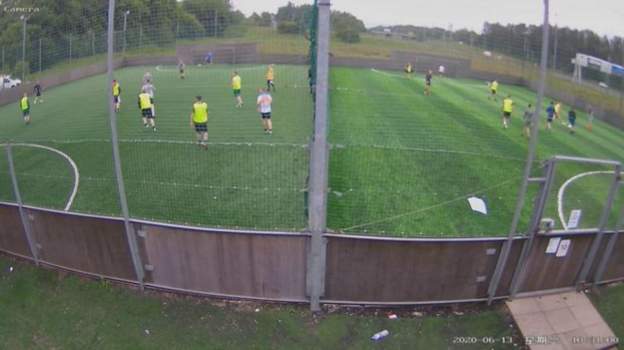
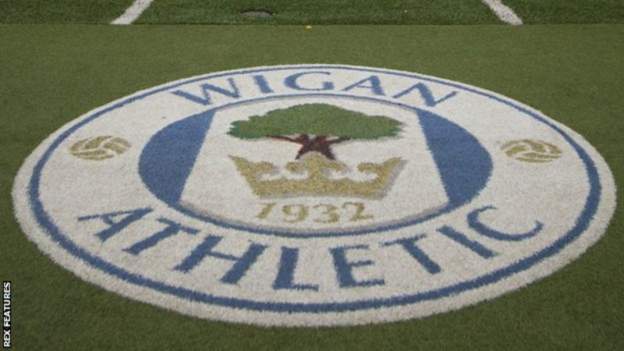
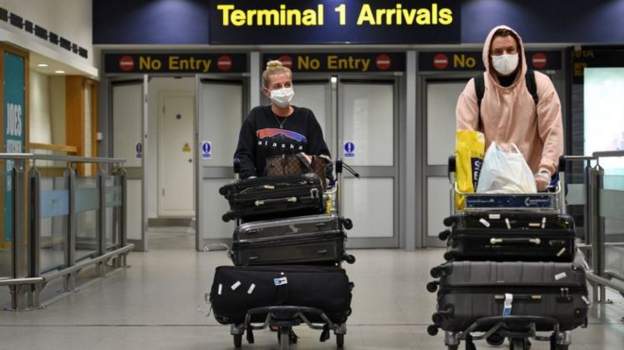
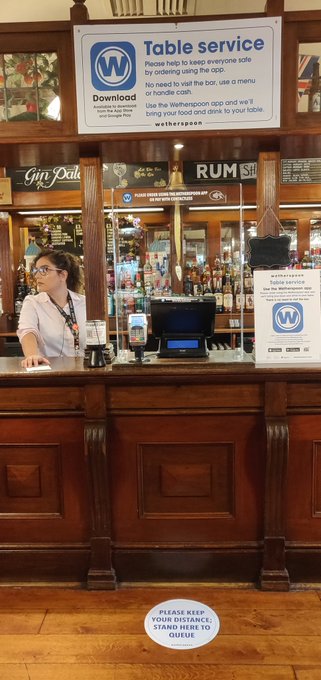
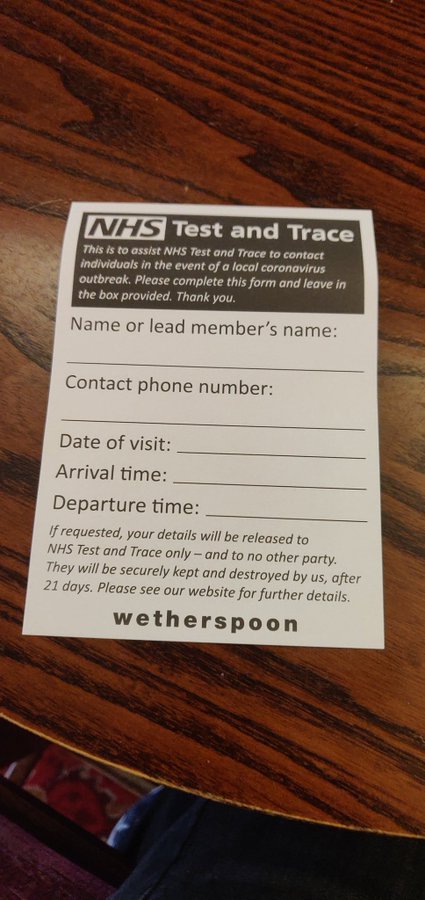
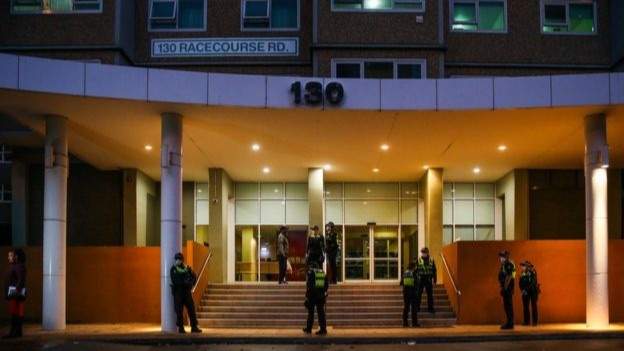











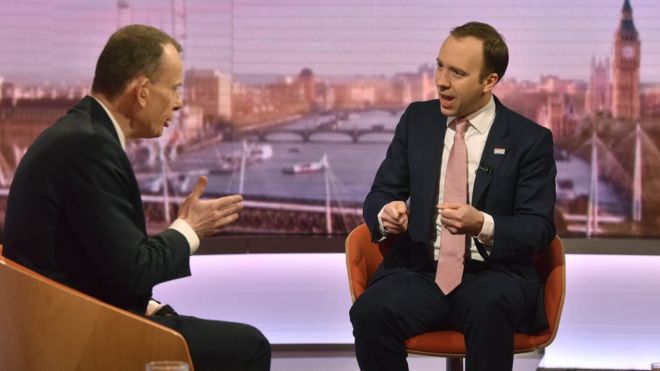
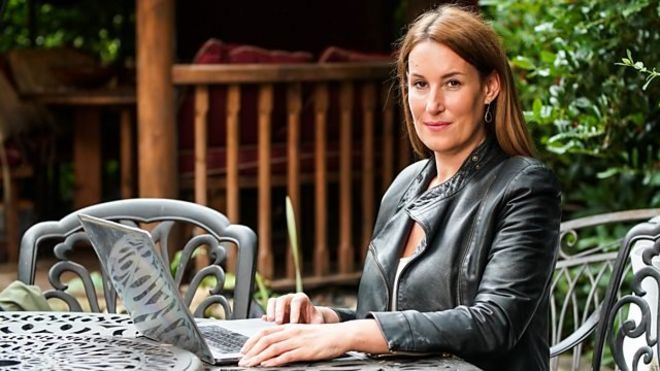











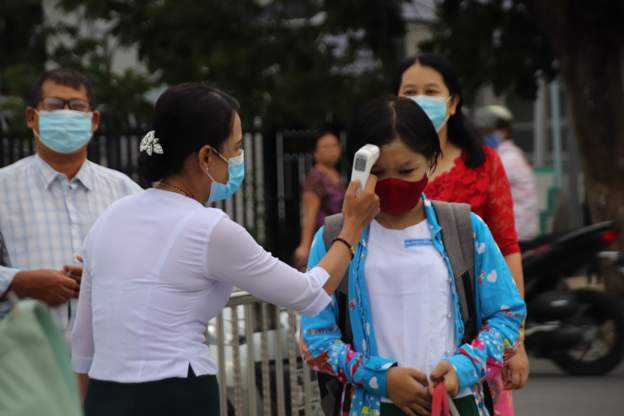

 by
by 

 61-BLUES
61-BLUES
